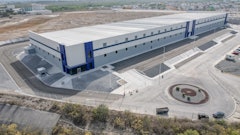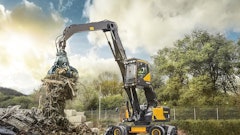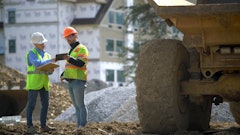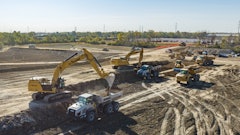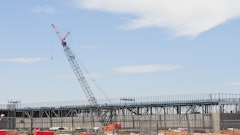There are a lot of lawyers out there. How do you find the one that is the right fit for you and your situation? The answer may be as close as a phone call to your neighboring construction company.
When choosing a lawyer, referrals are probably the most effective way to find a lawyer who has the expertise and traits to handle your case in a manner you find acceptable. "The best way to find a great lawyer would be to find one that your colleague has used or you could even start by calling one of your competitors," says Tamara McNulty, a partner with Venable LLP. "Maybe your competitor had a problem on another job and they used a certain lawyer. You can use this person to find out what their experience was with that attorney."
There are certainly alternative ways to find a potential lawyer. However, they may not be the most beneficial. "I don't think opening the phone book and looking for construction lawyers is the ideal way to go about your selection process," says McNulty. "I don't even think going to someone's bio on their firm's website or doing a Google search for construction lawyer is necessarily best." McNulty believes that some lawyers consider themselves construction lawyers, though they may not intimately know the industry. While others may know the industry but are not effective litigators.
Instead you should use more established and recognized sources, such as: the American Bar Association's Forum on the Construction Industry and Martindale. The next resource to tap would be local construction associations like AGC or AOD or local Building Congress - these local trade associations should be able to steer you in the right directions.
McNulty adds: "The thing about construction lawyers is that they join those organizations too if they are serious about construction law. You can find out from the various trade organizations who are the real construction lawyers because they are probably going to be members."
Find an expert
Two pitfalls you will want to avoid when identifying potential lawyers is picking someone just because they are local and picking a general practitioner. "There are significantly different levels of expertise and you need to find somebody who spends their day working with your problem," stresses Bert Brannen, partner with Fisher & Phillips LLP. "If it's a wage-and-hour problem you need to find a wage-and-hour expert, or an OSHA problem you need an OSHA expert as opposed to a general, all-purpose lawyer."
McNulty adds that you should look for a lawyer that can litigate and more importantly understand the industry. "I think the most important thing is does your lawyer really understand construction law?" asks McNulty "Particularly if you have a large/complicated claim, you don't necessarily need to have a lawyer who is local."
The person you need may be in another state. If the right person for the job isn't in your area you shouldn't hire a litigator just based on distance. "You hire a construction lawyer and you get local counsel to help you get through the filing," explains McNulty.
What you want to consider is, Does this person know your industry? Can he speak the language? Will he understand the nuances of your claim? McNulty paints a sobering picture about not being represented by an experienced lawyer saying "In the federal law arena, if you screw up your damages you can potentially be subject to fraud-like counterclaims, and instead of you getting paid, you'll pay the government for their time and trouble." She adds "You want someone who knows the area of construction law and the area of government law if it's a government project."
Making contact
Once you have identified the lawyer you are interested in working with, the best thing to do is call to schedule a time to meet. "Pick up the telephone because lawyers know they have to sell their business and they will respond a lot faster to a live person than to a unsolicited e-mail," says Brannen. "Most lawyers will be excited at the prospect of developing a new client and they will jump through hoops to go see the client. If they don't do that, that's not the lawyer for you."
During the initial contact you will probably be asked which parties are involved in your matter. This is done to ensure there is no conflict of interest for the lawyer who would be representing you. Beyond this information, you shouldn't be asked to divulge too many other details other than the general nature of the job and problem. The various aspects of your situation will be discussed in more detail during the first face-to-face visit if you choose to pursue a working relationship with this lawyer.
When discussing your problem with a lawyer on the phone or during the first meeting you should be able to get a good sense of whether this person has a good understanding of your situation and the proper steps to rectify it. "I think you have to have a discussion with the lawyer and there is no harm in talking with a couple of people," advises McNulty.
Brannen has a similar mentality saying that an attorney's approach should match with you and your company's approach. "There really has to be some chemistry between the client and the lawyer for the lawyer to effectively represent the client and meet his expectations," says Brannen. "Some clients are very cautious when it comes to risk and some clients are 'damn the torpedoes full speed ahead!' The lawyer has to appreciate the client's unique perspective and adjust his demeanor to the client's expectations."
In addition to having a good rapport with your lawyer, he should conduct himself in a professional manner. "Professionalism is a standard higher than just ethical or lawful," says Brannen. "It is being passionate about your client's case, it's working efficiently and economically and it's doing the basic courtesy things such as returning calls promptly, arriving at meetings on time, being prepared, following up promptly, being organized, neat and being respectful of everybody, regardless if they are a project secretary or the owner of the company."
The final element you should consider when choosing a lawyer best suited to help you is the resources available to support you and your lawyer. According to Brannen a lawyer should have access to sophisticated computer retrieval databases. In addition, he should have internet resources that add value to the relationship. Other things to consider include the ability to send/receive electronic bills and electronic access to documents.
Another important consideration is the knowledge pool the lawyer is able to tap into that would help your situation. "You may not have the nation's expert on the matter, but you want to know that he's on the bench supporting the guy who is responsible for your matter," says Brannen.
When you are working with your lawyer, you should make sure you know who is responsible for your case. Note: The person at the initial consultation may not be the person who directly handles your case. "Don't be offended if your initial contact has an associate work on the case," says Brannen. "But you need to clarify who is going to be the contact for this particular matter and who is going to be in charge of it."
Go with your gut
In the end, the decision of who's the best lawyer for you is up to you. "I think when you select this person you have to go with your gut reaction," says Brannen "You really have to have confidence that this person you are hiring is going to be an expert who is going to solve your problem as quickly and efficiently as possible while meeting your expectations. It's not just hiring a lawyer who can do it well enough, you want to hire the best person, the best value out there." It just may be the difference between winning and losing a dispute.
Tamara McNulty focuses her practice in complex commercial litigation, particularly in the areas of construction law, surety law and contract law. She is an experienced litigator, representing owners/developers, contractors, subcontractors, architects and sureties in construction-related disputes. She also provides her clients with front-end construction law experience, drafting contracts and project-related documents for owners, contractors and architects. Ms. McNulty can be reached at www.venable.com or by e-mail at [email protected].
Bert Brannen is a partner with Fisher & Phillips LLP, an Atlanta-based law firm with 18 offices cross the country. The firm represents employers nationwide in labor, employment, employee benefits and business immigration matters. Mr. Brannen can be reached at www.laborlawyers.com or by e-mail at [email protected].




